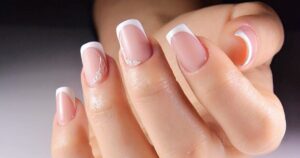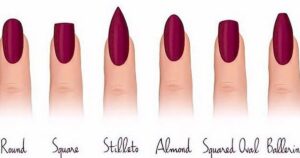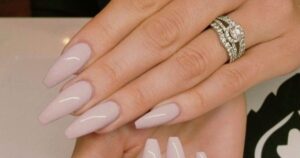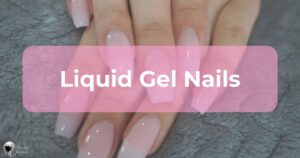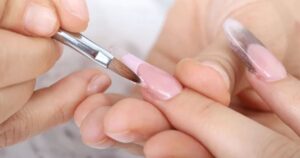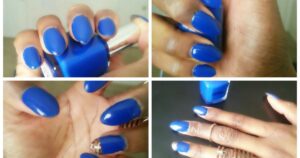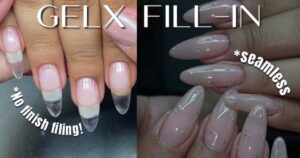Argan oil is often praised for its potential benefits for hair. It is rich in essential fatty acids, antioxidants, and vitamin E, nourishing and hydrating hair follicles. While argan oil can moisturize the scalp and make the hair appear shinier and smoother. There is limited scientific evidence to support its direct effect on hair growth. It is primarily influenced by genetics, overall health, and proper hair care practices.
To make the most of argan oil for hair health, it is important to apply it. A small amount of argan oil can be gently massaged into the scalp and spread along the hair strands. Do you know about Does Argan Oil Help Hair Growth? This can help moisturize the scalp, reduce dryness, and cut breakage.
Argan oil may not stimulate hair growth, but it can contribute to the health and appearance of the hair. Its moisturizing and nourishing properties can help maintain a healthy scalp and reduce hair damage. It is important to remember that hair growth is a complex process influenced by various factors. There is no magical solution for instant hair growth.
Hair Growth

Before we delve into the benefits of argan oil, it’s important to understand how our hair grows. Our hair is made up of tiny hair follicles all over our scalp. These hair follicles produce new hair cells, pushing out the old cells, making our hair grow longer. The rate of hair growth can vary from person to person, and factors like age, genetics, and overall health can also influence the development of our hair.
What Makes Argan Oil Special?

Argan oil is rich in various nutrients that can benefit our hair. It contains essential fatty acids like omega-6 and omega-9, which nourish hair follicles and promote healthy hair growth. It is also packed with vitamin E, which acts as an antioxidant and helps protect the hair from damage caused by free radicals.
Moisturizing Properties
One of the key reasons why argan oil is often used in hair care products is its excellent moisturizing properties. Dryness can lead to brittle and weak hair, hindering growth. Argan oil can moisturize the hair and scalp, providing hydration and preventing dryness. Keeping the hair well-moisturized, argan oil contributes to healthier and stronger hair growth.
The Science Behind Argan Oil and Hair Growth
Several scientific studies have been conducted to determine the effects of argan oil on hair growth. While more research is still needed, some studies have shown promising results. For instance, a study published in the Journal of Cosmetic Dermatology found that argan oil can improve hair elasticity and prevent hair breakage, which are important factors for maintaining healthy hair growth.
Stimulating Hair Follicles
One of how argan oil may help with hair growth is by stimulating the hair follicles. The nutrients in argan oil can penetrate the scalp and nourish the hair follicles, providing an optimal environment for hair growth. Additionally, argan oil has been found to have anti-inflammatory properties, which can help reduce inflammation in the scalp that may hinder hair growth.
How to Use Argan Oil for Hair Growth?
When using argan oil for hair, choosing a high-quality product is important. Look for 100% pure argan oil that is cold-pressed and organic. Does Argan Oil Help Hair Growth? Avoid products that contain added chemicals or synthetic fragrances, as they may do more harm than good to your hair.
Applying Argan Oil
Apply a small amount of oil to your fingertips to use argan oil for hair growth. Gently massage the oil into your scalp using circular motions. This will help improve blood circulation to the scalp and ensure the oil is distributed. Leave the oil on for a few hours or overnight, and then wash it off with a mild shampoo. Repeat this process a few times a week for best results.
Other Tips for Healthy Hair Growth
While argan oil may benefit hair growth, it’s important to remember that overall health also plays a crucial role. Eating a balanced diet that includes a variety of fruits, vegetables, lean proteins, and healthy fats can provide the necessary nutrients for healthy hair growth. Include foods rich in vitamins A, C, and E and biotin and omega-3 fatty acids, as they are particularly beneficial for the hair.
Avoid Excessive Heat and Chemical Treatments
Excessive heat from styling tools like flat irons and curling irons can damage the hair and lead to breakage. Similarly, chemical treatments like perming, relaxing, or coloring can weaken the hair shaft. To promote healthy hair growth, it’s best to limit the use of heat styling tools and minimize chemical treatments.
Individual Variations
It’s important to note that the effects of argan oil on hair growth may vary from person to person. Genetics, overall health, and existing hair conditions can influence the outcomes. While some individuals may experience positive results with argan oil, others may not see significant changes in their hair. It’s always best to manage expectations and consult with a healthcare professional or a dermatologist if you have any concerns about your hair.
Allergic Reactions
Although argan oil is generally considered safe for topical use, some individuals may have allergies or sensitivities. Before using argan oil on your hair or scalp, it’s recommended to perform a patch test on a small area of skin to check for any adverse reactions. If you experience redness, itching, or discomfort, discontinue use immediately and seek medical advice.
The Importance of Overall Hair Care
While argan oil can benefit hair growth, it’s important to maintain good overall hair care practices. Regularly washing and conditioning your hair with mild and suitable products can help keep your scalp clean and your hair follicles healthy. Clean hair and a healthy scalp provide a conducive environment for optimal hair growth.
Gentle Brushing and Avoiding Hair Breakage
A gentle brush or comb and avoiding excessive pulling or tugging can help prevent hair breakage. It’s best to start brushing from the ends and work your way up to minimize damage. Additionally, using hair accessories that are not too tight or abrasive can contribute to healthier hair.
The Role of Patience and Consistency
When it comes to hair growth, it’s important to remember that it is a gradual process. Hair typically grows about half an inch per month, so it may take some time to notice significant changes. Patience is key when trying different hair care methods, including argan oil. It’s important to remain consistent and give your hair and scalp enough time to respond to the treatment.
Consistency in Application
To achieve potential benefits from argan oil, it’s essential to be consistent in its application. Using argan oil a few times a week and incorporating it into your regular hair care routine can maximize its potential effects. Consistency allows the nutrients in argan oil to accumulate and support the overall health of your hair and scalp.
Conclusion
In conclusion, Does Argan Oil Help Hair Growth? Argan oil has gained popularity for its potential benefits in promoting hair growth, but more research is still needed to understand its effects fully. The presence of essential fatty acids and vitamin E in argan oil suggests that it can nourish the hair follicles and moisturize the scalp, creating an environment conducive to healthy hair growth. Combined with a balanced diet and proper hair care practices, argan oil may be a valuable addition to your hair care routine.
FAQs
How does argan oil benefit hair?
Argan oil moisturizes the hair, reduces frizz, and makes it smoother and more manageable.
Can argan oil prevent hair loss?
While argan oil can nourish and strengthen the hair, it is not a guaranteed solution for preventing hair loss.
Is argan oil suitable for all hair types?
Yes, argan oil suits all hair types, including dry, damaged, and curly.
Should I use argan oil every day?
The frequency of argan oil usage depends on your hair’s needs and preferences. Some people use it daily, while others use it a few times a week.

